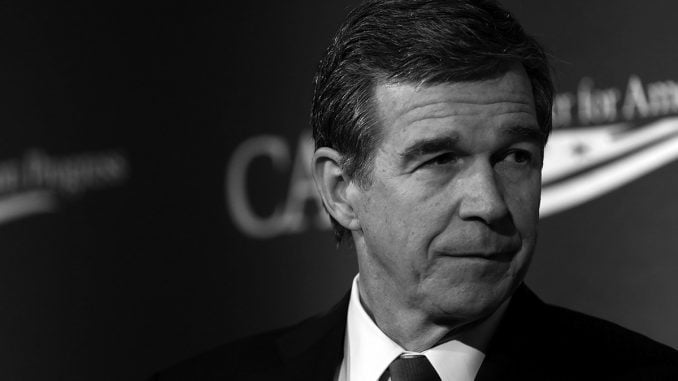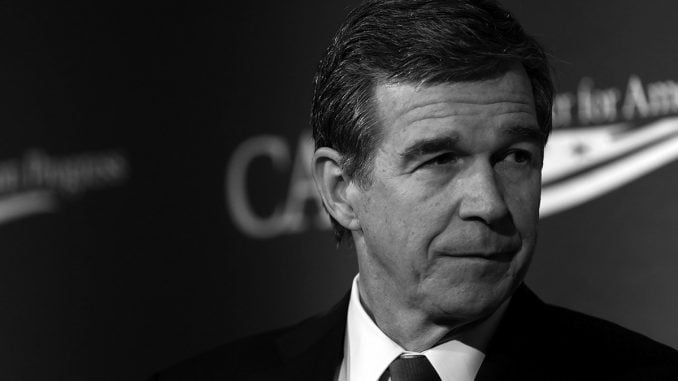

RALEIGH – With Politico calling the state’s governor’s race a “toss-up,” Democratic Gov. Roy Cooper may be facing an uphill battle for reelection in 2020.
Over his first three years, Cooper has been criticized on a number of issues including the handling of and delay in hurricane relief efforts during his first year to lingering accusations of a pay-to-play scenario involving the Atlantic Coast Pipeline’s multi-million-dollar mitigation fund.
Most recently, the governor’s lack of transparency on his out of state travel was questioned for the second time this year by state media outlets.
Beyond transparency issues, Cooper’s veto of the state budget over his Medicaid expansion ultimatum has caused teachers to go without a raise. The legislature managed to get raises in for most state employees except for teachers due to the governor vetoing a second teacher pay offer of 8.3% over the biennium.
Cooper has consistently focused on progressive Democrat wish-list items like Medicaid expansion and climate change.
“I have vetoed right-wing social legislation,” Cooper said in the video announcing his filing for re-election.
This likely refers to the Born Alive Abortion Survivor’s Act, which would have required a baby surviving an abortion be given medical aid, as well as legislation aimed at “sanctuary sheriffs,” requiring them to comply with ICE detainers.
When it comes to saying “no” with a veto, Cooper now holds the state record.
In his first year in office, Cooper surpassed the veto record of 20 held by former Gov. Beverly Perdue. By the end of year three, Cooper’s veto total stands at 42, surpassing the combined 32 vetoes of his predecessors since veto power was given to the governor’s office in 1997.
Ideologically, Cooper and his likely challenger, Lt. Gov. Dan Forest, are diametrically opposed on many issues, including the topic of school choice, which has become a national hot button issue for voters.
Over the course of his two terms, Forest has openly promoted school choice from homeschooling to charters and vouchers.
“I’m very much in favor of school choice and letting the parents choose and putting students first over the system,” Forest said in a recent radio interview on former Gov. Pat McCrory’s radio show. “And so, real simple things like opportunity scholarships, this is a no-brainer. You signed those bills as well, saying that students that live in failing school districts should have an opportunity for an excellent education, and our governor stands firmly against that.”
Prior to his inauguration, Cooper told the Associated Press that “Obviously there will be no voucher funding in any budget that I propose with the General Assembly.”
Cooper followed up on that pre-inaugural promise and has attempted more than once to cut the state’s voucher program, known as the Opportunity Scholarship Program, that serves thousands of low-income and minority students.
Where Cooper wields an advantage at the moment is in fundraising. Cash on hand at the end of the mid-year semi-annual reporting period for Cooper’s campaign came in at over $5.6 million versus the Forest Campaign’s $1,012,102 cash on hand for the same period.
In his reelection for a second term as lieutenant governor, Forest garnered more votes than any other Council of State member, pulling in 84,357 more votes than Cooper in his matchup with McCrory and even grabbing 30,883 more votes than Donald Trump.
In order to get to Cooper, Forest will have to defeat primary challenger state Rep. Holly Grange, a Republican representing New Hanover County since 2016. Before running for the seat, Grange was appointed to replace Republican Rick Catlin who resigned on Aug. 15, 2016.
The Primary date is set for March 3, 2020 and the General Election will be held Nov. 2, 2020.



